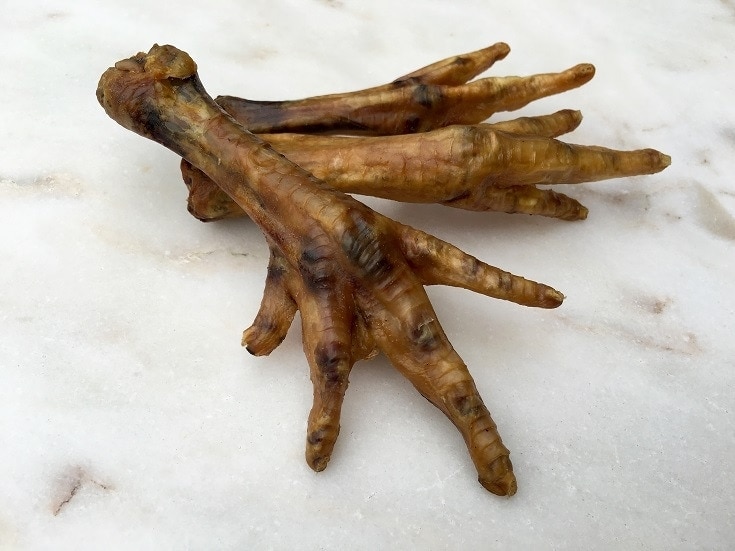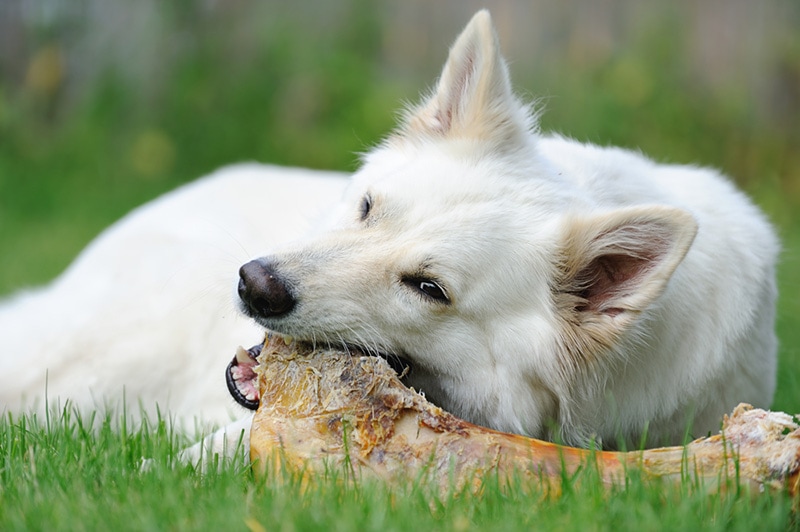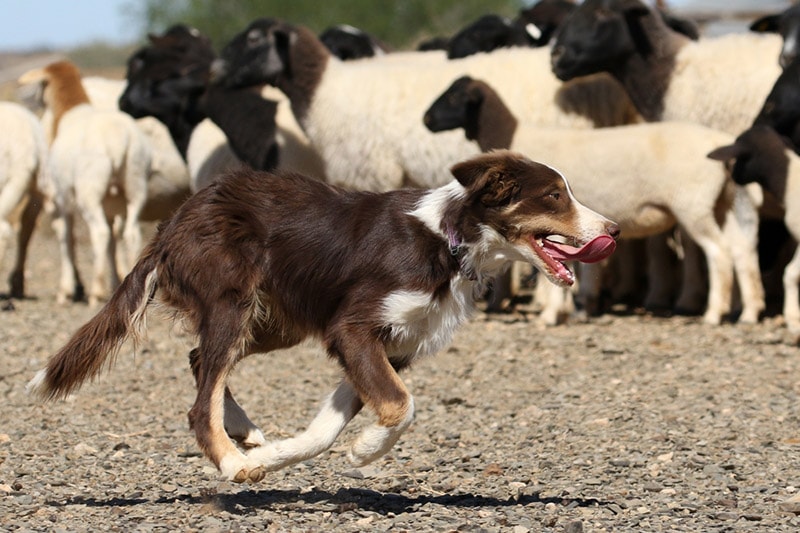Can Dogs Eat Chicken Feet? Vet-Approved Nutrition Facts
By Hanh Duong
Updated on

Click to Skip Ahead
Chicken feet may not be the first thing that pops into your mind when looking for a dog treat, but they are worth considering. Not only can your dog eat chicken feet, but they offer a wide range of health benefits that can help boost your pup’s overall well-being. Did you know these treats are brimming with glucosamine and chondroitin, essential for maintaining healthy joints and keeping your pet active and mobile? Moreover, these crunchy treats can also help to promote good dental health. Read this guide to learn more!
Feeding Chicken Feet to Your Dog
Chicken feet are often overlooked and wasted when chickens are slaughtered. Although considered standard fare on many Asian menus, their lack of appeal for western appetites mean they are usually discarded. However, there’s a way to ensure nothing goes to waste—by repurposing them into dog treats. If you’re a pet lover who wants to spoil your furry friend with unique and healthy food, you’ll be happy to know that chicken feet for dogs come in different forms. So, why not give it a try and see if it’s your pup’s preference?

Raw Chicken Feet
You can easily find raw chicken feet at your local butcher or farmer’s market, either frozen or fresh. Just keep in mind that since they’re unprocessed, they’ll need a good cleaning before giving them to your dog. And if you’re feeling adventurous, you can even dehydrate them at home for a tasty and crunchy snack.
Dehydrated Chicken Feet
You’ll be glad to know that dehydrated feet go through a thorough cleaning and dehydration process before they’re packaged and ready for your furry friend. With a shelf life of over 6 months, you can stock up without worrying about them going bad.
Air-dried (Puffed) Chicken Feet
These are similar to dehydrated feet but, unlike the dehydrated variety, air-dried chicken feet may retain more nutrients and vitamins.

Can Dogs Eat Raw Chicken Feet?
Chicken feet can be a great source of glucosamine and chondroitin, making them a tasty snack for dogs, that can help support healthy joints. Plus, if you’re looking for a way to keep your dog’s teeth clean and healthy, raw chicken feet can help. The bones and connective tissues can help break up tartar build-up and promote good dental hygiene.
Before you rush out to the butcher shop to stock up on these treats, you need to consider some important factors. While proponents of raw diets for dogs claim that feeding your pup raw chicken feet is perfectly safe, remember that they carry the risk of parasites and bacteria that can make your dog sick. Even chicken sold in stores for human consumption has been found to contain harmful bacteria like Campylobacter and Listeria at alarmingly high rates.1
So, while raw chicken feet might be a delicious and nutritious treat for your dog, make sure you’re buying them from a reputable source and taking all necessary precautions to keep your pup safe and healthy.
Can Dogs Eat Cooked Chicken Feet?
You might be wondering, if you cook the chicken feet, would that make them safer? Unfortunately, this is not the case. Although most pathogens will be eliminated by cooking, the bones inside the feet become brittle and can easily splinter into sharp pieces. And if your dog accidentally ingests these splintered bits, it can lead to severe health issues like choking, damage to the gastrointestinal lining, even perforation.
The 4 Chicken Feet Alternatives
Are you searching for healthy and natural treats for your furry friend but not sure if chicken feet are the right choice? There are some great alternatives that you might want to consider. Let’s take a closer look at each option:
1. Dental Chews
Dental chews are specially designed to clean your dog’s teeth and freshen their breath while providing a satisfying chewing experience.
2. Pig Ears
These are another natural alternative to chicken feet that work wonders in keeping your dog’s teeth healthy. They are filled with cartilage and skin, much like chicken feet. However, if you have a dog that tends to swallow rather than chew, these are not the best option, as they can sit in the stomach for a long time, causing inflammation and obstruction.

3. Chicken Necks
Chicken necks have a similar nutritional composition to chicken feet and are available in raw or dehydrated form. They contain high levels of glucosamine and chondroitin, making them an excellent substitute. However, they are just about the right size and shape to get lodged in the intestine, so they may not be ideal for dogs who tend to swallow their food without chewing.
4. Raw Bones
If you have a large dog that is likely to swallow anything it can fit in its mouth, the best way to reduce their risks is to opt for things that are too large to swallow. Large raw bones are a good option, but avoid any that are cut in half. It may allow them to access that delicious marrow they desire, but this can lead to two issues.
- Gastrointestinal upset or pancreatitis from eating a fat-rich meal
- Splintering of the bone at the cut surface

Conclusion
Chicken feet are packed with nutrients that are great for your dog’s joints and teeth. They come in several different forms to suit your pet’s individual preferences and needs. But before you start giving your dog chicken feet, it’s important to note that they may not be suitable for all dogs. Young puppies and canines with chicken allergies should avoid them.
When finding the perfect chicken treats for your pup, always choose a brand you can trust—look for high-quality options that are nutritious, safe, and tailored to your dog’s unique needs. Talk to your vet about what sorts of foods and treats are best for your dog, especially if they have any health conditions or dietary restrictions.
Featured Image Credit: Bigc Studio, Shutterstock














